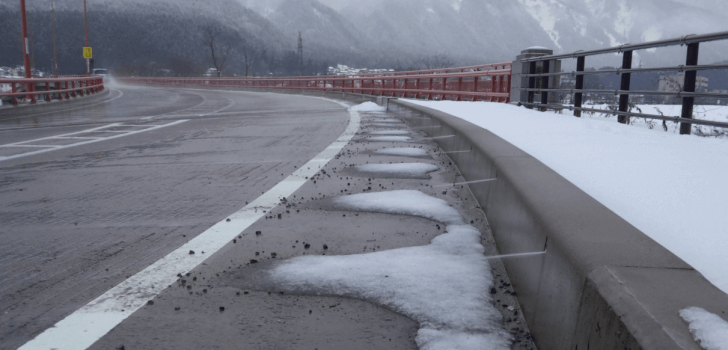A team of researchers in Turkey report they are close to a major breakthrough in winter driving safety – self de-icing roads.
The researchers from Turkey’s Koc University have been working on developing and testing what is essentially salt-infused asphalt by adding potassium formate (a salt that dissolves on contact with water and has a lower melting point) into bitumen, the active ingredient of asphalt.
A statement from the researchers published in the latest edition of The American Chemical Society says, “The resulting material was just as sturdy as unmodified bitumen, and it significantly delayed ice formation in lab studies. The new composite released de-icing salt for two months in the lab, but the effects could last even longer when used on real roads. In that instance, the salt-polymer composite would be evenly embedded throughout the asphalt. Thus, as cars and trucks drive over and wear away the pavement, the salt could continually be released — potentially for years.”
Although the main idea is to use the bitumen on roadways, it also has potential uses for airport runways and walking paths. Not only would this increase safety, but it would also save huge amounts of money spent annually on using salt and other material to de-ice roads.
City governments in snow-hit regions in the U.S. currently use salt and sand as topical de-icing agents, but have also experimented with some weird alternative such as cheese and vodka.
A 2015 U.S. Geological Survey shows that 43 percent of the annual salt production in the U.S., which is valued at $2.2 billion, is devoted to melting ice on roads. The Rochester City Council in New York state has purchased 27,000 tons of salt for $46.80 per ton in preparation for this winter. It will also spend $1 million spreading the salt across the city.
There is no word yet on what the self de-icing asphalt will cost, but a safe bet is that its use will be decried, at least behind closed doors, by ambulance chasing law firms who make their money suing cities and property owners for injuries resulting from people slipping on icy footpaths.
